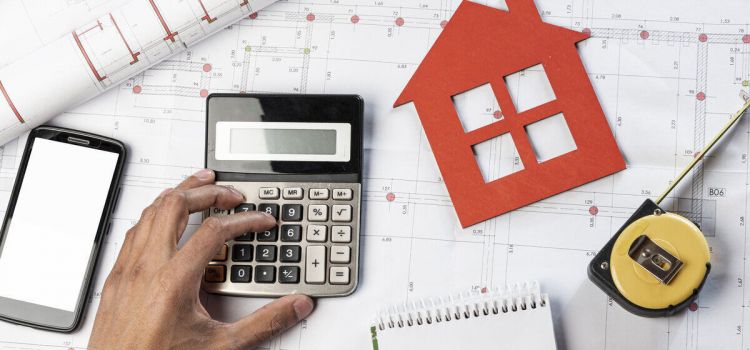Blog
Understanding Bali Property Tax in 2025
4 September 2025 by Seo Manager
Bali continues to shine as a top destination for real estate investment. From serene beachfront villas to eco-friendly retreats nestled in rice fields, the island’s property offerings are as diverse as its landscapes.
But before diving into a purchase, it’s crucial to understand the tax landscape that comes with owning or investing in property here. Whether you're a first-time buyer or an experienced investor, this 2025 guide to taxes on Bali property purchases will help you make smart, informed decisions - and avoid costly surprises along the way.
Key Property Transaction Taxes in 2025
Understanding your tax obligations is essential before signing a deal. In Bali, two primary taxes apply to property transfers:
BPHTB (Bea Perolehan Hak atas Tanah dan Bangunan) – 5%
This is a Property Acquisition Tax, paid by the buyer, calculated based on the declared value in the Sales Deed (AJB) or the higher of the transaction value and NJOP (government-assessed value).
PPh (Pajak Penghasilan) Final Tax – 2.5%
The Income Tax, paid by the seller, is calculated based on the Sales Deed value. These percentages are consistent across property types and apply to both Indonesian and foreign investors.
Proper valuation and legal structuring ensure compliance and reduce risks during due diligence.
Leasehold vs Right-to-Use Titles: Tax Implications
Let’s take a closer look at the tax implications of different property contract types available to foreign buyers, including leasehold agreements and Right-to-Use (Hak Pakai) titles.
Leasehold Agreements
-
Lease terms often span 25–30 years, with extensions possible up to 80 years.
-
Tax for Buyer: No BPHTB or PPh Final taxes at the time of lease signing.
-
Tax for Lessor: Rental income is subject to final income tax in Indonesia, not progressive individual tax rates. The applicable final tax is 10% for both Indonesian citizens (WNI) and foreign nationals (WNA) holding a KITAS, and 20% for foreign nationals without a KITAS.
Right-to-Use (Hak Pakai)
-
Intended for foreigners domiciled in Indonesia or foreign companies.
-
Buyer’s Tax: 5% BPHTB.
-
Seller’s Tax: 2.5% PPh Final.
Understanding these nuances is crucial. Leasehold often involves fewer upfront taxes but may include renegotiation clauses.
Hak Pakai titles are ideal for long-term users and are renewable for up to 70–80 years.
VAT Updates in 2025: What Buyers Should Know
Starting January 1, 2025, Indonesia implemented a selective VAT rate of 12% on luxury goods, including high-end real estate.
-
Properties valued above approximately IDR 5 billion may fall under the 12% VAT category, although this threshold is based on market practice rather than a formal legal benchmark.
-
For standard residential properties, the VAT remains at 11%.
This selective VAT approach may affect mainly premium villas and luxury residences, prompting developers to adjust pricing or offer flexible payment structures. If you are targeting a luxury property, it's important to factor in the applicable VAT to your overall acquisition cost.
Annual Land and Building Tax (PBB)
Separate from purchase-related taxes, the PBB (Pajak Bumi dan Bangunan) is a yearly tax obligation for property owners. The general framework is:
-
Tax Rate: Up to 0.3% of the NJOP (assessed property value), depending on the property's classification and location.
-
Tourist and urban zones typically experience higher NJOPs, leading to higher tax amounts.
-
Rural areas tend to offer lower NJOP assessments.
Always request the latest NJOP certificate during negotiations to calculate your yearly obligations accurately.
Other Costs to Budget For
Purchasing property in Bali isn’t just about the listing price. Smart buyers plan for:
-
Notary/PPAT Fees: Approximately 1% of the transaction value.
-
Legal Setup for Foreigners: Setting up a PT PMA (foreign-owned company) can range from $3,000 to $5,000 USD.
-
Annual Property Taxes and Compliance: PBB and potential other local levies vary but PBB itself remains capped at 0.3%.
Working with knowledgeable advisors ensures these ancillary costs are clearly mapped out from the beginning.
Foreign Ownership and Taxation Rules
While foreigners cannot directly own freehold land in Indonesia, legitimate pathways for ownership include:
-
Leasehold Titles: Grant rights for varying durations, with the potential to extend, up to a total of 80 years.
-
Hak Pakai (Right-to-Use): Available to long-term visa holders, with the initial period up to 30 years, extendable.
-
PT PMA Structures: Foreign-owned companies can acquire Right-to-Build (Hak Guna Bangunan) titles, providing strong commercial ownership rights.
Each ownership structure comes with different tax obligations and legal responsibilities, making it crucial to get professional guidance before proceeding.
How These Taxes Affect Investment Potential
Despite tax adjustments, Bali remains a robust real estate market.
-
Rental yields in popular areas like Canggu, Seminyak, and Uluwatu are generally estimated at 10%-12% annually for leasehold properties. Freehold properties typically yield around 7%-10%, with the added benefit of potential capital appreciation on both land and building assets, as well exact location, property type, and evolving market conditions."
-
Tax obligations slightly affect luxury property prices, but Bali's high tourism growth and limited land availability continue to drive demand.
Practical Tips for Buyers in 2025
-
Consult a local expert: We are an experienced team that can guide you through legal, financial, and practical aspects.
-
Verify the NJOP: Always cross-check the NJOP to avoid unexpected annual taxes.
-
Plan comprehensively: Factor in all taxes, legal fees, and ownership setup costs—not just the property price.
-
Explore new hotspots: Lesser-known areas offer potential for lower taxes and higher returns.
People Also Ask
How much is property tax in Bali?
Annual land and building taxes (PBB) are typically up to 0.3% of the NJOP, varying by region. Transfer taxes apply at purchase.
Do foreigners pay tax in Bali?
Yes, foreigners pay transaction taxes such as BPHTB and ongoing PBB, depending on their ownership structure (leasehold, Hak Pakai, or PT PMA).
Can foreigners buy property in Bali?
While foreigners cannot hold Hak Milik (freehold) title, they could legally purchase property under certain conditions. If a foreigner were to buy a property with a freehold certificate, the title would be converted to Hak Pakai or SHGB, depending on their legal status.
What is the property sales tax in Indonesia?
Buyers pay 5% BPHTB; sellers pay 2.5% PPh Final on the gross transaction value.
Invest with Confidence, Let Us Guide You
Understanding taxes on Bali property purchases is vital for securing a stress-free and profitable investment. From BPHTB and VAT to annual land taxes, every buyer should be informed and prepared.
At Bali Coconut Living, we specialize in helping local and international investors navigate property purchases with confidence. Whether you're looking for a vacation villa, Bali land for lease, or a long-term investment, our team is here to guide you.
We’ll make sure your journey is smooth from legal structuring to tax compliance. Whether you're looking to buy or explore Bali villa rent options, we’re here to help you make the right move.
Ready to invest in Bali? Whether you're searching for a dream villa or commercial space for rent Bali to grow your business, we’re here to help.
Contact us today to find the right property—tax stress not included.


